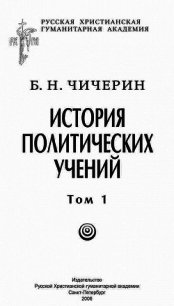Политика и рынки. Политико-экономические системы мира - Линдблом Чарльз (книги бесплатно полные версии .TXT) 📗
Paul Hollander. «Soviet and American Society» (New York: Oxford University Press, 1973), pp. 44-55.
8
Jerry F. Hough. «The Soviet Prefects» (Cambridge: Harvard University Press, 1959), p. 111ff.
9
Frederick Barghoom. «Politics in the U.S.S.R.», 2nd ed. (Boston: Little, Brown, 1972), pp. 34, 55, 185.
10
Raymond A. Bauer, Alex Inkeles, and Clyde Kluckhohn. «How the Soviet System Works» (Cambridge, Mass.: Harvard University Press, 1957), p. 39.
11
Schurmann. «Ideology and Organization», p. 109.
12
Hough. «Soviet Prefects», p. 98ff.
13
Ibid., chapter 4.
14
Rigby. «Traditional, Market, and Organizational Societies and the U.S.S.R.», p. 182.
15
Hough. «Soviet Prefects», chapters 5 and 7; Rigby. «Traditional, Market, and Organizational Societies and the U.S.S.R.», p. 182.
16
О партии как об исполнителе, а не создателе и разработчике политики, см. в: Robert Conquest. «Power and Policy in the U.S.S.R.» (New York: St. Martin’s, 1961), p. 30. Также см. в: Chalmers Johnson. «Comparing Communist Nations» in «Change in Communist Systems», ed. Chalmers Johnson (Stanford, Calif.: Stanford University Press, 1970), p. 11.
17
James Chieh Hsiung. «Ideology and Practice» (New York: Praeger, 1970), p. 156.
18
Великолепное лаконичное описание идеологии в Советском Союзе см. в: Bauer, Inkeles, and Kluckhohn. «How the Soviet System Works», pp. 31-35.
19
Jerry Hough. «The Soviet System» // «Problems of Communism» 2 (March-April 1972): 31.
20
Cm.: Daniel Bell. «Ideology and Soviet Politics» // «Slavic Review» 24 (December 1965): 602.
21
Cm.: Schurmann. «Ideology and Organization», p. 109ff, особенно c. 111 о партии как источнике инноваций в Китае.
22
Анализ сложных и скрытых способов и причин, которые обусловливают то, что проводящая инновации элита теряет свое инновационное рвение, см. в: Vernon V. Aspaturian. «Social Structure and Political Power in the Soviet System» in U.S. Congress, House, Committee on Foreign Affairs, Subcommittee on Europe, Hearings, Recent Developments in the Soviet Bloc, Part II, 88th Congress, 2d session, 1964.
23
Ленин В.И. Государство и революция. М.: Издательство политической литературы. 1979. —С. 103.
24
Donald R. DeGlopper. «Recent Changes in Chinese Society» // «The Annals» 402 (July 1972): p. 21ff; William L. Parish. «China-Team, Brigade, or Commune» // «Problems of Communism» 25 (March-April 1976).
25
Schurmann. «Ideology and Organization», p. 479ff.
26
Robert M. Bernardo. «The Theory of Moral Incentives in Cuba» (University, Ala.: University of Alabama Press, 1971), pp. 66-67.
27
Schurmann. «Ideology and Organization». О новом утверждении «общества» над организацией см. с. 542.
1
Вот более ранняя версия двух моделей, из которой я взял несколько элементов: Charles Е. Lindblom. «The Sociology of Planning» in «Economic Planning East and West», ed. Morris Bornstein (Cambridge, Mass.: Ballinger, 1975).
2
Например, см.: Zbigniew Brzezinski. «Between Two Ages» (New York: Viking, 1970), p. 72. И Андрей Сахаров, хотя по многим положениям отступал от веры коммунистов в интеллектуальное могущество человека, в 1971 году продемонстрировал уверенность вполне в духе модели-1, рекомендовав создать «Международный совет экспертов по проблемам мира, разоружения, экономической помощи нуждающимся странам, защите прав человека и охране окружающей среды».
3
Цит. по: Jerome М. Gilison. «The Soviet Image of Utopia» (Baltimore: Johns Hopkins University Press, 1975), p. 120.
4
Талмон проводит различие между «приматом и эксклюзивностью истины в политике» и политикой «как средоточием проб и ошибок», при которой политические системы есть «прагматический продукт человеческой изобретательности и спонтанности»
(J. L. Talmon. «The Origins of Totalitarian Democracy» [New York: Praeger, 1960] [Талмон Дж.Л. Истоки тоталитарной демократии // Опубл. в: Тоталитаризм: Что это такое? (Исслед. зарубеж. политологов): Сб. ст., обзоров, реф., пер. — М.: ИНИОН, 1993. —
Ч. 1, с. 191-192]).
5
Harry Harding, Jr. «Maoist Theories of Policy-Making and Organization» in «The Cultural Revolution in China», ed. Thomas W. Robinson (Berkeley: University of California Press, 1971), p. 123.
6
Талмон различает «всеохватную единую философию» и «набор прагматических установок» (Талмон Дж.Л. Указ, соч., с. 192].
7
О том, насколько важна правильность в свете советской теории, см. в: Abraham Katz. «The Politics of Economic Reform in the Soviet Union» (New York: Praeger, 1972), p. 120 и в других местах; также см. в: Raymond A. Bauer, Alex Inkeles, and Clyde Kluckhohn. «How the Soviet System Works» (Cambridge, Mass.: Harvard University Press, 1957), p. 49.
8
Robert A. Dahl. «Polyarchy» (New Haven, Conn.: Yale University Press, 1971), pp. 1-2.
9
Michael Polanyi. «Science, Faith, and Society» (London: Oxford University Press, 1946), chapter 3.
10
Harding. «Maoist Theories», p. 123.
11
Donald V. Schwartz. «Recent Soviet Adaptations of Systems Theory to Administrative Theory» // «Journal of Comparative Administration» 5 (August 1973): 236.
12
Benjamin I. Schwartz. «А Personal View of Some Thoughts of Mao Tse-tung», in «Ideology and Politics in Contemporary China», ed. Chalmers Johnson (Seattle: University of Washington Press, 1973), p. 359.
13
Талмон Дж.Л. Указ соч., с. 192.
14
Gregory Grossman. «The Solidary Society» in «Essays in Socialism and Planning in Honor of Carl Tandauer» (Englewood Cliffs, N.J.: Prentice-Hall, 1970).
15
Derek Bryan. «Changing Social Ethics in Contemporary China» // «Political Quarterly» 45 (January-March, 1974): 50.



